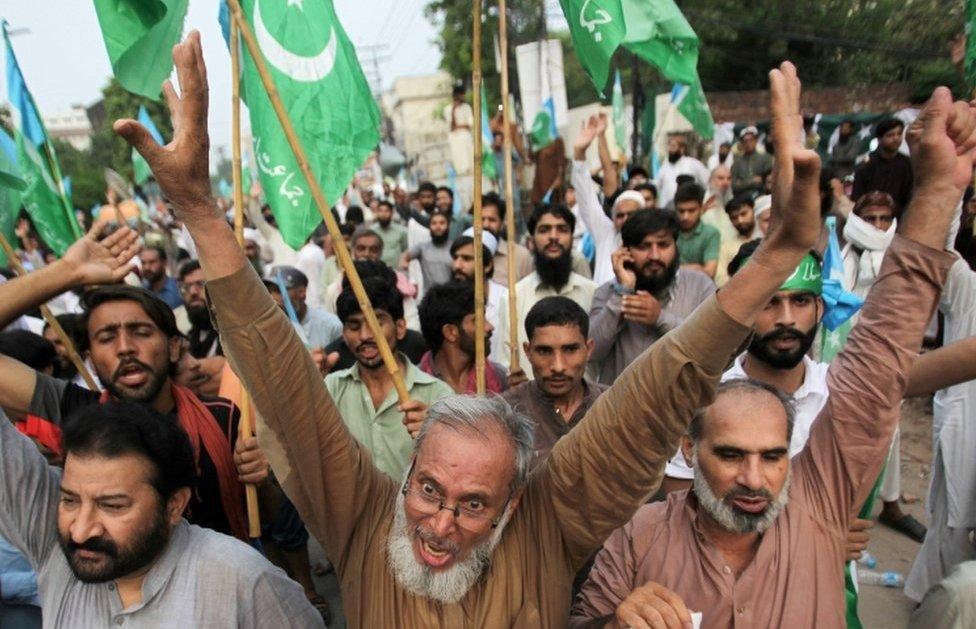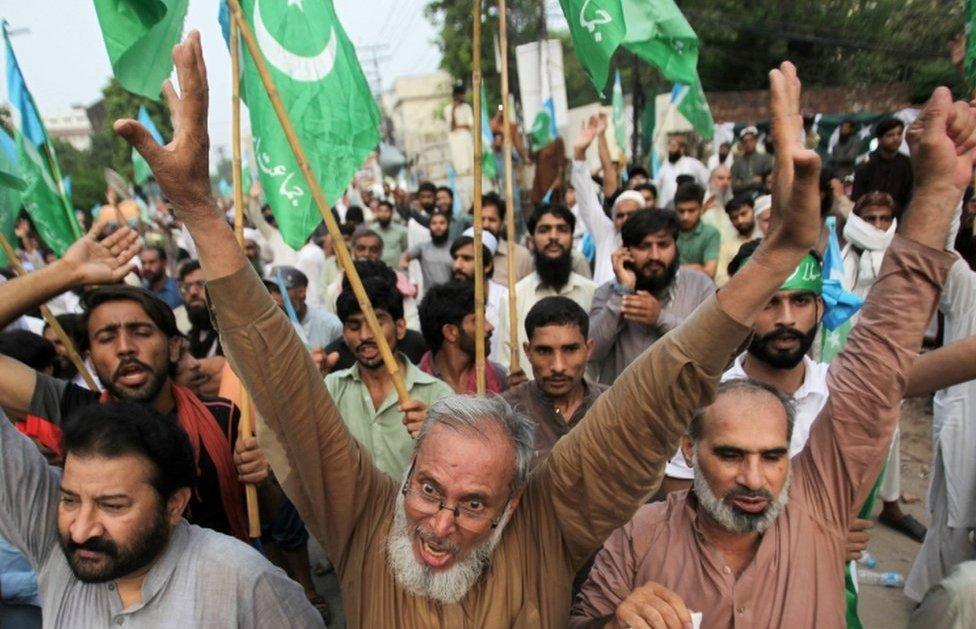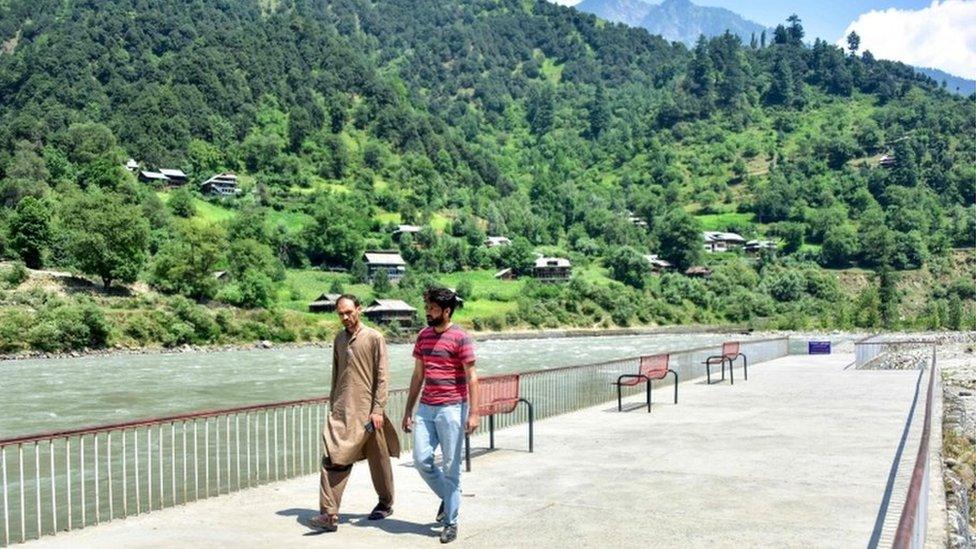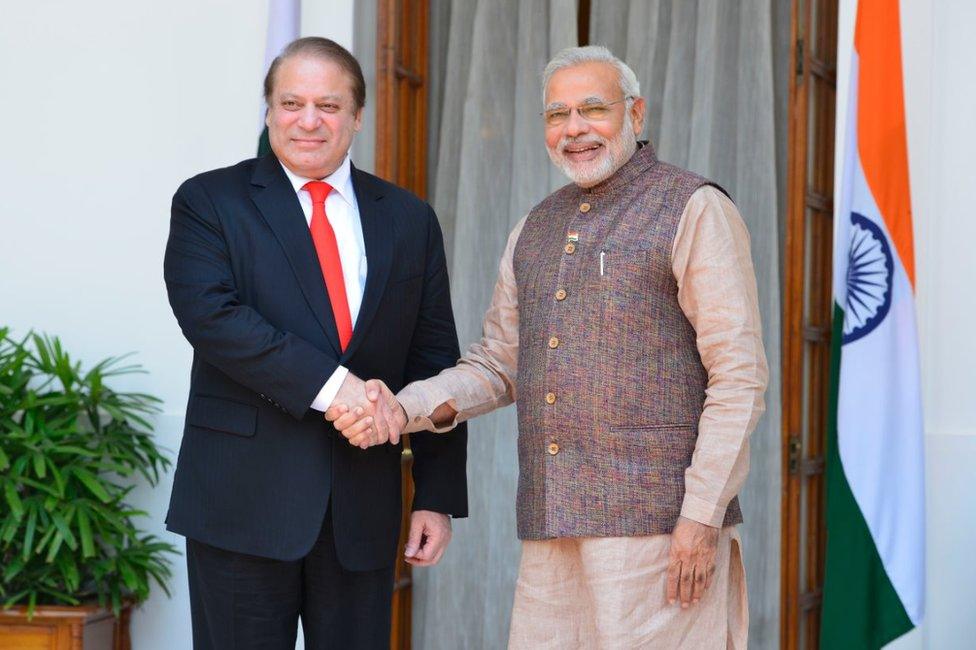

Nuclear-armed neighbours India and Pakistan have fought two wars and a limited conflict over Kashmir. But why do they dispute the territory - and how did it start?
Kashmir is an ethnically diverse Himalayan region famed for the beauty of its lakes, meadows and snow-capped mountains.
Even before India and Pakistan won their independence from Britain in August 1947, the area was hotly contested.
Under the partition plan provided by the Indian Independence Act, Muslim-majority Kashmir was free to accede to either India or Pakistan.
The maharaja (local ruler), Hari Singh, initially wanted Kashmir to become independent - but in October 1947 chose to join India, in return for its help against an invasion of tribesmen from Pakistan.
A war erupted and India asked the United Nations to intervene. The UN recommended holding a plebiscite to settle the question of whether the state would join India or Pakistan. However, the two countries could not agree to a deal to demilitarise the region before the referendum could be held.
In July 1949, India and Pakistan signed an agreement to establish a ceasefire line as recommended by the UN and the region became divided.

A second war followed in 1965. Then in 1999, India fought a brief but bitter conflict with Pakistani-backed forces.
By that time, India and Pakistan were declared nuclear powers. Today, Delhi and Islamabad both claim Kashmir in full, but control only parts of it.
Within Kashmir, opinions about the territory's rightful allegiance are diverse and strongly held. Many do not want it to be governed by India, preferring either independence or union with Pakistan instead.
Religion is one factor: Jammu and Kashmir is more than 60% Muslim, making it the only part of India where Muslims are in the majority.
An armed revolt has been waged against Indian rule in the region since 1989, claiming tens of thousands of lives.
India accuses Pakistan of backing militants in Kashmir - a charge its neighbour denies.
In 2019, Indian-administered Kashmir was stripped of its semi-autonomous status by the government in Delhi amid a huge security crackdown.
For several years after, the revocation of the region's special status, militancy waned and tourist visits soared.
What happened after previous Kashmir militant attacks?
In 2016, after 19 Indian soldiers were killed in Uri, India launched "surgical strikes" across the Line of Control - the de facto border between India and Pakistan - targeting alleged militant bases.
In 2019, the Pulwama bombing, which left more than 40 Indian paramilitary personnel dead, prompted Indian airstrikes deep into Balakot - the first such action inside Pakistan since 1971 - sparking retaliatory raids and an aerial dogfight.
Tensions rose again in April 2025 after years of relative calm when militants killed 26 people in an attack on tourists near the resort town of Pahalgam in Indian-administered Kashmir. It was the deadliest attack on civilians in two decades.
India responded two weeks later with missile strikes on targets in Pakistan and Pakistan-administered Kashmir, once again raising fears of further escalation and calls for restraint.
Kashmir remains one of the most militarised zones in the world.
India and Pakistan did agree a ceasefire in 2003.
In 2014, India's current Prime Minister Narendra Modi came to power promising a tough line on Pakistan, but also showed interest in holding peace talks.

Nawaz Sharif, then prime minister of Pakistan, attended Modi's swearing-in ceremony in Delhi.
But a year later, India blamed Pakistan-based groups for an attack on its airbase in Pathankot in the northern state of Punjab. Modi also cancelled a scheduled visit to the Pakistani capital, Islamabad, for a regional summit in 2017.
Since then, there hasn't been any progress in talks between the neighbours.

9 PerFlyer